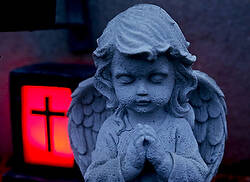Writers like to write in the shadow of death.
“Write,” writes Annie Dillard, “as if you were dying. At the same time, assume you write for an audience consisting solely of terminal patients. That is, after all, the case. What would you begin writing if you knew you would die soon? What could you say to a dying person that would not enrage by its triviality?”
Those are not words. They are a diagnosis, a grave one. They leave one speechless. In the face of oblivion, what isn’t trivial? If I were to write with that attendant thought, I think it would be hard to say much of anything. I would want to cease speaking, and make room for the voice of the dying, not my own.
Christopher Hitchens echoed Dillard’s exhortation. In an essay collection published shortly before his death, he recalled Nadine Gordimer’s advice “that a serious person should try to write posthumously.” Hitchens “took her to mean that one should compose as if the usual constraints—of fashion, commerce, self-censorship, public and perhaps especially intellectual opinion—did not operate.”
Every line of Hitchens, everything of his I’ve ever read, suggests he did exactly that, but it became more than a construct once he received the news of his own diseased condition. So long had Hitchens refused to censor himself, so vigorously did he attack his subjects and opponents, it’s as if the diagnosis were there all along. But here was the paradox: Hitchens didn’t write as if he were facing death, but rather as if everyone else was. He wrote not with an air of mortality, but with an air of immortality. He wrote as if he was unaccountable. He wrote with sovereign confidence in the superiority of his own mind.
That aside, what is it about writing that makes imagining the end so helpful, so, if these writers are to be believed, necessary? Does it work with other roles, other professions? Consider again Dillard’s line, “Write as if you were dying…” Should I teach as if I were dying? What would I teach to a dying person, to borrow from Dillard, “that would not enrage by its triviality?” (It would certainly not be preparation for the SAT. And not calculus, either. What a terrible way to make one’s last lap, looking up to find an equation waving one home.)
I suppose it’s not that hard. Perhaps they are appropriating in a different context a wisdom imparted long ago. A truth that makes for great writers and saints:
“In the sweat of your face you shall eat bread till you return to the ground, for out of it you were taken; you are dust, and to dust you shall return.”









Mr. Snowden: Thank you for sharing; I am sorry to hear of your brother's death. What a long life! I am glad to know you were able to visit with him in his final days. Despite his wish for you to remain away, I'm sure he was deeply moved that you were there. I certainly would want to be next to my brother and family in the closing hours of our pilgrimage.
Your experience of the purple mist is fascinating, and similar to some stories I've heard about other deaths -- other images or objects associated with a specific person that recur in the lives of friends or family. Who knows how to make sense of these things except through prayer?
Does the color purple have any special meaning for your family or your brother? Is there any reason that purple would be the color crowning the chalice? (Other than the obvious liturgical and scriptural significance...)
Again, thanks for sharing. I will pray for you and your brother and your families to feel the grace and companionship of Christ.
You are welcome, and thanks for sharing. I will continue to pray for your family.
Thanks so much for reading my posts and supporting my blog as well. It's a huge grace for a writer!